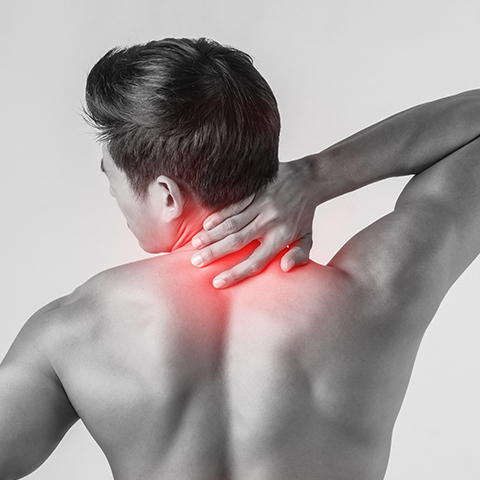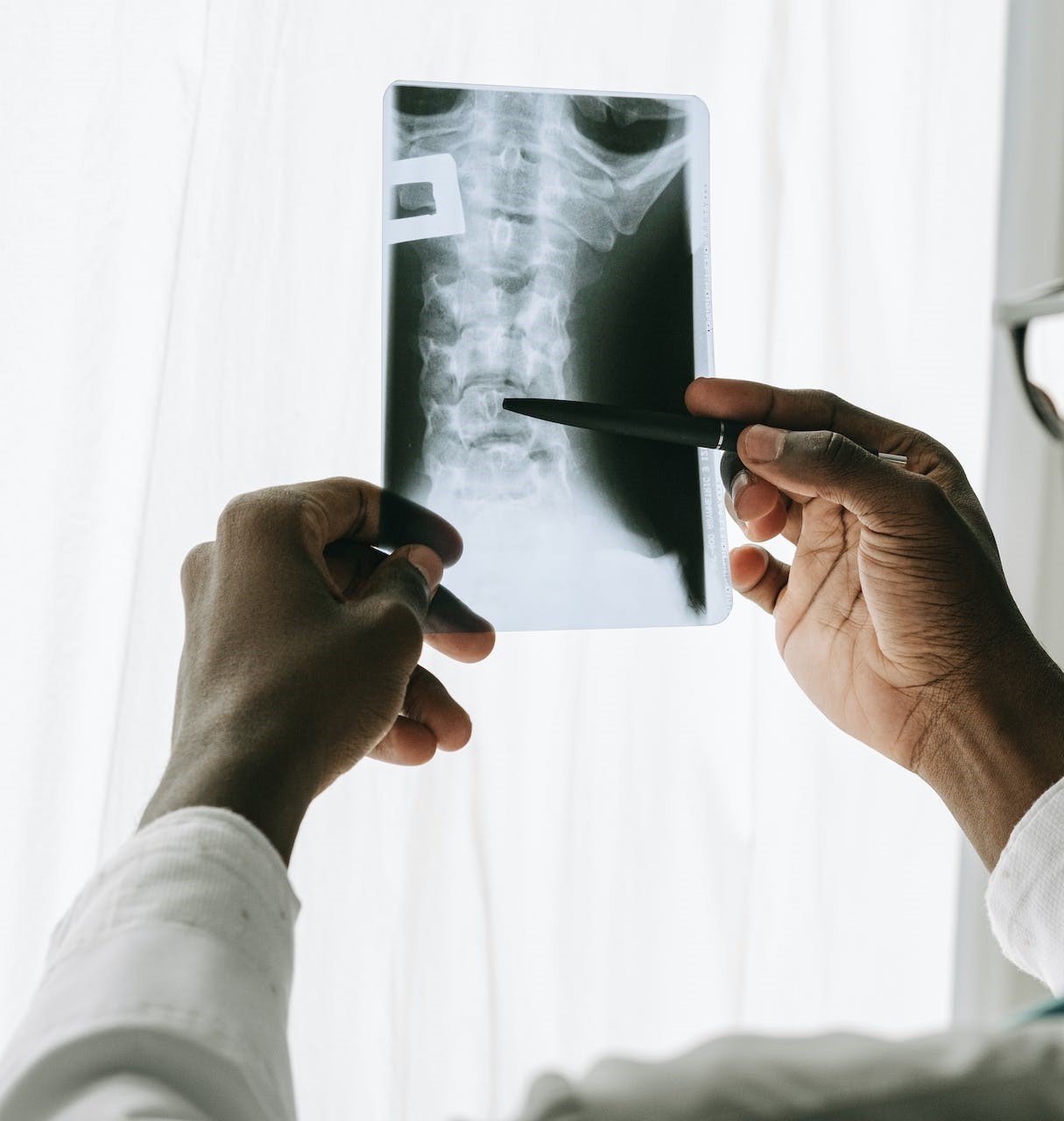Schedule An Appointment With Us
Are Your Symptoms Affecting Your Quality Of Life?
Consult our MOH-accredited orthopaedic surgeon for an accurate diagnosis & personalised treatment plan.
MBBS
MRCSEd
MMED (Ortho)
FRCSEd

Neck pain is a form of discomfort that arises from factors influencing the structures within the neck region. This pain, often experienced as stiffness, soreness, or tension, can result from causes including poor posture, muscle strain, overuse, or injury.
The neck’s complexity, with its intricate network of muscles, ligaments, and vertebrae, bears the weight of the head and facilitates movement, making it prone to stress and discomfort.
Neck pain is commonly caused by the following sources:
The symptoms and signs of neck pain are diverse and may disrupt sleep, work, and leisure activities, affecting overall quality of life.

The diagnosis of neck pain is a systematic process, that often involves several steps:
Non-surgical treatments play a role in managing neck pain, especially when the condition is not severe enough to require surgical intervention. These focus on relieving pain, improving function, and addressing the underlying causes of neck pain.
Rest and Activity Modification |
Initially, the neck specialist may suggest resting the neck and modifying strenuous activities. Adequate rest allows strained neck muscles to recover, while gentle movement helps avoid stiffness and supports overall recovery. |
Physical Therapy |
Customised physical therapy exercises can help strengthen the neck muscles, enhance flexibility, and improve posture. These exercises aim to alleviate tension, correct imbalances, and support the neck’s structures. |
Pain Medications |
Over-the-counter pain relievers like ibuprofen or acetaminophen, or prescribed anti-inflammatory drugs, offer short-term pain relief. |
Heat and Cold Therapy |
Heat and cold therapy might be recommended as part of the treatment. Cold packs can reduce swelling, while heat promotes blood circulation and muscle relaxation. |
Ergonomic Adjustments |
Optimising workspace ergonomics and maintaining proper posture can help alleviate pain and prevent the further deterioration of the condition. Adjustments in chair height, monitor placement, and keyboard alignment, coupled with regular breaks, are effective in reducing neck stress. |
Massage and Manual Therapy |
These techniques focus on releasing muscle tension, improving circulation, and promoting relaxation. They can help relieve discomfort and improve neck mobility. |
Surgical intervention may be considered under specific circumstances, particularly when non-surgical treatments are ineffective, and structural or nerve-related abnormalities are identified.
This procedure involves the removal of a herniated disc that is pressing on a nerve root or the spinal cord. It aims to relieve nerve pain and restore normal function.
In this surgery, two or more vertebrae are fused. It is often used to stabilise the spine and alleviate pain caused by movement between vertebrae that have been damaged by arthritis, a herniated disc, or other conditions.
This involves the removal of part of the vertebra (the lamina) to create more space and relieve pressure on the spinal cord or nerves. It is often performed in cases of spinal stenosis, where the narrowing of the spinal canal causes pain and mobility issues.
Schedule An Appointment With Us
Consult our MOH-accredited orthopaedic surgeon for an accurate diagnosis & personalised treatment plan.
Preventative strategies are aimed at minimising the risk factors of neck pain and maintaining neck health.

MBBS
MRCSEd
MMED (Ortho)
FRCSEd
With over 20 years of experience, Dr Poh Seng Yew is an orthopaedic surgeon specialising in hip, knee, shoulder and elbow surgery, sports medicine, and trauma surgery.




Weekdays: 9.00am – 5.00pm
Saturdays: 9.00am – 1.00pm
Sundays and Public Holidays: Closed
Please leave us a message, and we will be in touch with you shortly.
Exercises for neck pain focus on strengthening the neck muscles, improving flexibility, and promoting proper posture. Gentle stretching, neck tilts, and rotations may help maintain mobility and relieve stiffness. Strengthening exercises, such as those involving resistance bands, can also help build muscle support around the neck.
When experiencing neck pain, sleep in a position that maintains the natural alignment of the spine. Use a supportive pillow that keeps the neck in a neutral position. Sleep on your back or your side and avoid sleeping on your stomach as it can put additional strain on your neck. Additionally, ensuring the mattress provides adequate support can also help in reducing discomfort.
Nerve pain is often characterised by symptoms like sharp, shooting pain, tingling, numbness, or weakness in the arms or hands. Muscle pain tends to be more localised, presenting as soreness, stiffness, or tightness in the neck muscles. Muscle pain can also involve spasms and tends to worsen with movement or activity. If you are unsure about the nature of your neck pain, consult a neck specialist for clarity and guidance.
Medical help should be sought for neck pain if it is severe, persistent, or progressively worsening. If the neck pain is accompanied by symptoms like numbness, weakness, or radiating pain, it could indicate a more serious underlying condition. Neck pain following an injury, such as a fall or accident, also warrants a medical evaluation. Early consultation with a neck specialist can aid in the timely diagnosis and treatment of the condition.